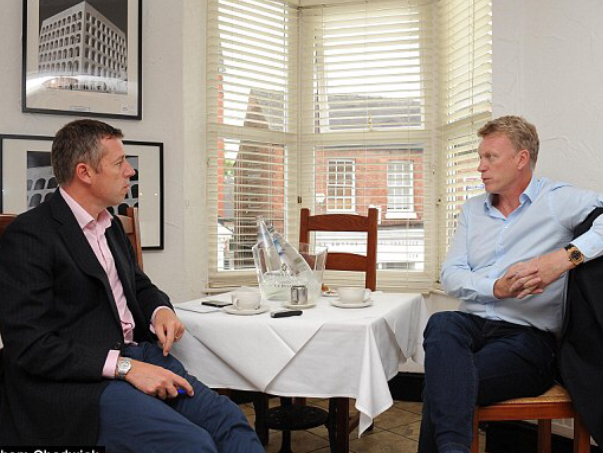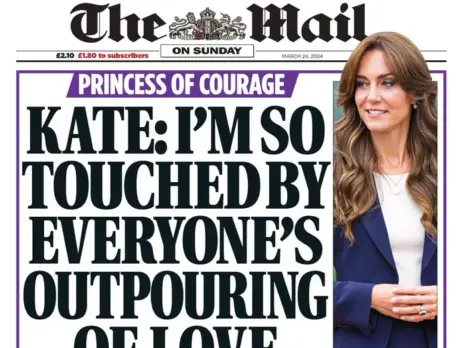
Online competition has raised the bar for sports journalism, according to Daily Mail chief sports writer Matt Lawton.
The winner of the sport prize at the British Journalism Awards said: “It used to be you write a straight match report and that was enough.
“It isn’t enough now. There’s much more of a need to tell the reader something they don’t know.
“It’s good to be fresher and more imaginative to satisfy the reader. They have seen it [match results] eight times on the weekend already. To keep it relevant come Monday morning is much harder.”
Father-of-three Lawton, from south east London, has worked for nearly 24 years as a journalist, including 15 years with the Mail, five as a football writer at the Daily Express and 18 months on the Daily Telegraph.
After graduating from Loughborough University in 1992, Lawton, 46, said he was so keen to become a journalist that when he failed to gain a place on City University’s newspaper journalism masters course he rang up to tell them they had “made a mistake”.
He was later accepted when another student dropped out before the term had started, but said he quickly decided that practical experience was better journalism training than sitting in lectures.
Out of university, Lawton sold stories to the Guardian and Observer by covering the World Student Games in America – paying his own way to get there after a tip-off it would yield national bylines.

Matt Lawton with football manager David Moyes. Picture: Graham Chadwick
His work caught the eye of the then sports editor of the Guardian Mike Averis who tipped him off about a job as a rugby correspondent for regional daily the Western Daily Press in Bristol, which he took.
“I didn’t have any contacts in rugby – I blagged my way onto it,” he said, adding: “I loved it. I was covering Bath when they were the best in the country. I did foreign trips and went to the Rugby World Cup in South Africa as the local paper guy.”
He said the role also offered him the chance to sub-edit and learn the trade under sports editor Bill Beckett, a former chief sub-editor at the Daily Express, but he added: “Unfortunately, because of the way that local papers have died, those opportunities aren’t there anymore and it’s really sad. Journalists are missing out on a lot of fun.”
It took working seven days a week for two years, with the extra day spent shifting at the Daily Express, before Lawton landed a job as a football staff writer on the title, relocating to Manchester.
While he continues to cover football in particular, Lawton has also carved out a name for himself in reporting on corruption and doping in sport.
One of Lawton’s stories submitted to the British Journalism Awards last year included an exclusive report revealing Team GB cyclist Lizzie Armistead (now Deignan) was almost banned from cycling after missing three drug test appointments in the lead up to the Rio Olympic Games.
He said: “I got tipped off that Armistead had three missed tests. I got it second sourced and then approached Armistead’s people who stood it up and arranged for me to speak with her. She gave me her version of events.”
The story resulted in Armistead’s father confronting him on the day of the 2016 Olympic cycling road race. Lawton revealed that a few weeks ago he was accused by Armistead’s husband of costing his wife an Olympic medal (Armistead placed fifth).
Asked if these encounters troubled him, Lawton said: “You never enjoy that but it doesn’t shake me up. It would only shake me up if I felt I was in the wrong, if I felt I couldn’t stand by what I had written.
“The measure I always use – and I say this to some of our trainees – is if I bump into that person, could I look that person in the eye and stand by my journalism? I looked Lizzie Armistead in the eye after that race and I gave as good as I got with her husband a couple of weeks ago and with her dad too.
“They both feel it wasn’t in the public interest. They think it was wrong when it was a private arbitration [between Armistead and the doping authorities]. I would argue that a world champion cyclist had almost been suspended in the build up to the Olympics and was only allowed to ride a few weeks earlier and other riders didn’t know about it and were unhappy – she was heavily criticised by Bradley Wiggins and Mark Cavendish.
“I would stand by that story. They wanted her banned from the Olympics and she got off.”
Lawton said the job of a sports reporter had “changed a lot” over the years.
He said: “Go back 30 to 40 years, when people were covering England they would cover foreign matches where the newspaper report was the only means of knowing what happened in that game. It wasn’t on the radio or television, it was just the newspaper.
“I hear stories about guys going to Russia and covering a game and not managing to file the whole time they were there.”
While at the Rugby World Cup in 1995, Lawton said he didn’t have a mobile phone and “once you filed, you were out for the evening”.
He said journalism is “more intense now”, adding: “It’s no longer just getting a good story on the England team for the next day.
“Online has made everything a contest. That’s where the pressure can come.
“You get nervous holding stuff for the paper unless you absolutely know that you are the only one who has got this.
“I was petrified about holding the Armistead story [for the paper] because since I had started talking to people I couldn’t be sure that her PR people might think: ‘We aren’t sure that we are going to get a sympathetic hearing from the Mail so let’s go to another paper or the BBC’.”
He said he thought the standard of sports journalism has “never been higher”, adding: “The only way we are going to survive is to keep investing in the investigation stories and the stories that set agendas and you can only do that if you are given time and taken off-diary.
“I think print newspapers will survive. But it just has to be good to survive. It’s going to shrink and I’m not sure everyone’s going to survive, but I’m hopeful that it will survive.”
Asked how much of his work was off-diary, Lawton said: “I cover the England football team so that’s very much on diary.
“But, a lot of the time I’m off-diary. I have a close relationship with my desk but if I’m not in the paper the next day it’s because I’m meeting someone or pursuing something in particular. I have a bit of freedom to pursue stuff. It’s a nice mixture.”
He said of his role: “My wife and boss would say that I never switch off. The only time my phone’s switched off is when I’m on an aeroplane. The phone is on by the bed. I think that is a little bit what it takes, but I think it isn’t very healthy – when you’re pacing around the pool on holiday getting daggers from the missus – but unfortunately that is the job.
“I was on a family holiday in Italy when the Sam Allardyce [being appointed as England manager] story broke. I was dictating copy on Allardyce and the FA while I was driving through the Italian Alps.
“There were times on that holiday where I was sitting at the dinner table with my laptop. England is one of my responsibilities and there was a new England manager, so I had to work. I didn’t get a day off for a month and you just accept that. I wouldn’t change it for anything. I loved it.”
While many publishers struggle to reconcile print and online, Lawton said: “I don’t think paper-first or online. We are working for both. For some stories online is a much bigger deal.
“When you are in Rio and a story goes online, that’s getting a lot of attention. That’s the reason why every international journalist knows about that story in Rio, because it is on our website.
“Often the bigger reach can be online. As a journalist, I can’t not enjoy that.”
Email pged@pressgazette.co.uk to point out mistakes, provide story tips or send in a letter for publication on our "Letters Page" blog







